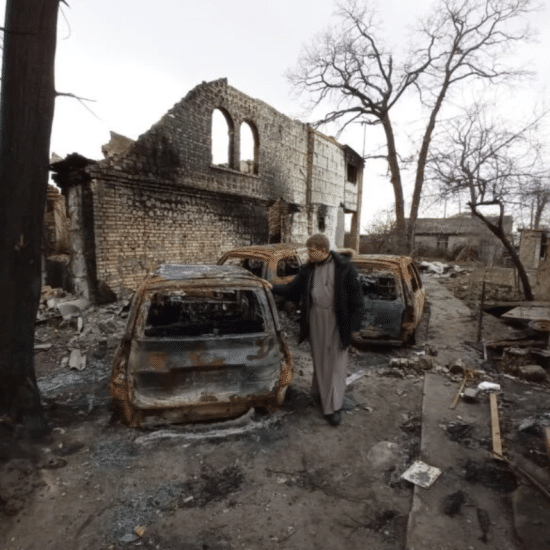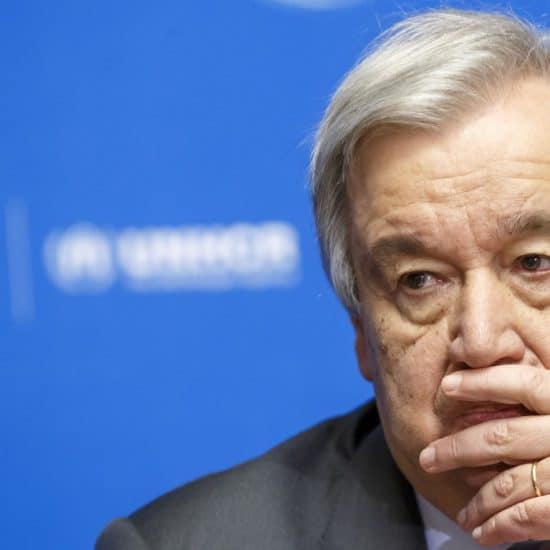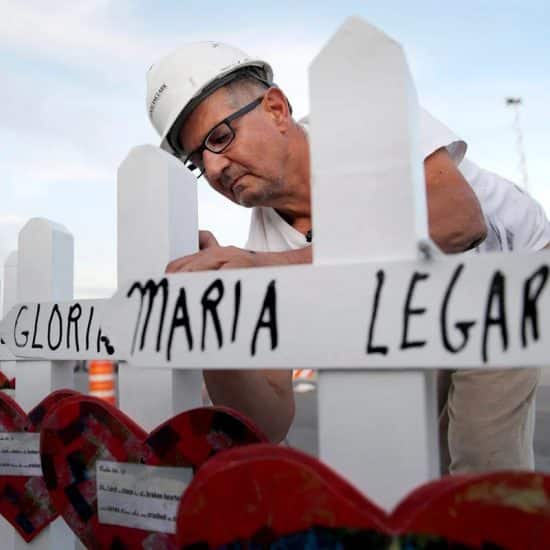DETROIT (ABP) — Much of the global unrest that keeps political cauldrons boiling across the world emanates from a religious center, so Baptist peacemaker Dan Buttry taps the peace traditions of various faiths to bring factions to non-violent resolution.

Global peace consultant Dan Buttry's home is in Detroit, but he live on airplanes, shuttling to hot spots to train participants in non-violent ways to achieve peace.
|
A global consultant for peace and justice with American Baptist Churches USA, Buttry, 59, keeps his home in Detroit, where he was once a pastor, but he lives on airplanes carrying a figurative fire hose to help extinguish flames of conflict.
A Vietnam-era conscientious objector, Buttry is the son of an Air Force chaplain who disagreed with his position but encouraged him to stand by his convictions. Buttry calls his move, after exhaustive Bible study, to a peace position almost as dramatic a conversion as his first in becoming a Christian.
He is convinced that any serious Christ follower must “end up in some sort of a peace position.”
Buttry says the fact that peacemaking and a commitment to non-violent resolution is radical to most Christians is “because we’ve been conformed to the world.”
For a Christian to be “involved in killing,” he said, they must have “some value (they hold) higher than Christ.
Buttry sometimes acts as a mediator, but most of his work is training would-be peacemakers in principles of mediation, reconciliation and achieving win-win results. His training includes trauma recovery, so pain that already has occurred doesn’t move into a next cycle of violence.
Buttry has done this training — under one umbrella or another since 1992 — literally around the world. That includes the Philippines, India, Indonesia, Thailand, Burma (Myanmar), Hong Kong, Nepal, Liberia, Congo, Cameroon, Sierra Leone, Zimbabwe, Russia, Ukraine, Georgia, Italy, Costa Rica, Bolivia, Brazil, Jamaica, Ethiopia, Kenya, Lebanon, Bosnia, Croatia, Bulgaria, Kyrgyzstan, Cuba, Canada and the United States.
One of Buttry’s biggest efforts has been with the Nagas in northeast India. As Gandhi led a non-violent revolution that was about to result in Indian freedom from British rule, he promised the Nagas they did not have to be included in the new India if they didn’t want to be.
Gandhi’s successor Nehru broke that promise and wouldn’t allow Nagas to separate, prompting a violent conflict that simmered for decades, resulting eventually in Nagas breaking into factions and fighting among themselves, as well, despite the fact that Nagaland is 80 percent Baptist.
In 1997 Buttry participated in the first Naga peace talks, held at Emory University in Atlanta, with some sessions at the Carter Center and at Oakhurst Baptist Church. Wati Aier, a driving force in Naga peace negotiations, received the Baptist World Alliance Human Rights Award this July.
This August all factional leaders came together for the first time and affirmed the reconciliation process that set into motion movement for an eventual single Naga government that will provide a united negotiating entity to deal with the Indian government for independence.
“They changed the whole way things are done and developed so much power they control the agenda, and the guys with the guns are having to respond to them instead of the other way around,” Buttry said.
Buttry says non-violence as a solution is held to a different standard than is armed conflict. If a non-violent attempt fails to make immediate impact, doubters say it should be abandoned after a single attempt.
But he points out that gun wielding violence has a much higher failure rate, and at a much greater cost.
His central biblical theme is from Romans 12:21: “Don’t be overcome by evil, but overcome evil with good.”
Because “as a Baptist, the idea of testimony is so key,” Buttry’s latest of seven books, Blessed Are the Peacemakers, details 62 peacemakers from many nations and faith traditions.
“That’s how we nourish hope,” he said, “seeing something that actually happened.” Most storytelling has been dominated by historians or media that glorify violence in a bloody “history told by victors” but his stories break stereotypes and “open discussion within other religious communities.”
Buttry’s hope also is nourished by a growing commitment of young people to learn the ways of non-violence and reject the appeal of bigger guns to resolve issues.
He organized a peaceful alternative in Detroit when the fundamentalist, Qur’an burning pastor Terry Jones of Florida came to spread his invective on last Good Friday. On Holy Thursday Buttry gathered 1,000 people of several faiths to pray together around the mosque Jones had targeted.
Jones’ effort was deflated because of the contrast and local Muslims were elated because they received support, instead of exposure and isolation.
Buttry shared that story in Orissa, India, where a Hindu majority was creating violent havoc. “Majority religious bodies need to stand up for minority groups,” he said.
-30-
Norman Jameson is reporting and coordinating special projects for ABP on an interim basis. He is former editor of the North Carolina Biblical Recorder.






